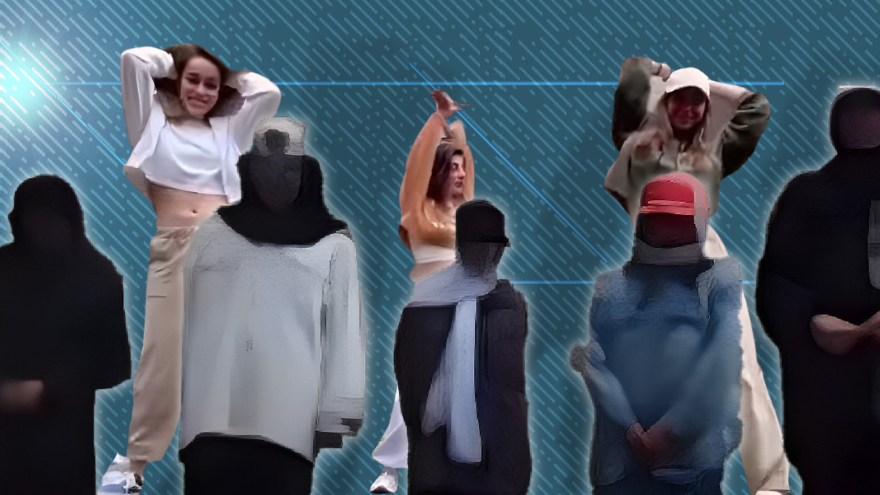A group of five teenage girls in Iran was detained and forced to apologize after they posted a video of themselves dancing to a Selena Gomez song on TikTok.
Iranian law forbids women from dancing in public and requires women to wear hijabs.
The video, filmed outside an apartment building in a suburb of Tehran, was regarded as an act of defiance. The teens posted the video on March 8 – International Women’s Day. In the video, the girls are dressed casually in crop tops with their hair down and uncovered. Their song of choice was “Calm Down” by Gomez and Nigerian singer Rema.
When Iranian authorities became aware of the viral video, officials interrogated the guards at the building and used security camera footage to track down the girls. The teenagers were detained for 48 hours, according to Italy’s Repubblica newspaper.
Al Arabiya reports the teens were initially given a warning before being brought back into police custody and detained.
The teens were then taken back to the place where they filmed their dancing video and forced to record themselves repenting while wearing hijabs.
The neighborhood, Ekbatan, was the site of recent protests sparked by the death of 22-year-old Masha Amini, who died on Sept. 22, 2022 while in police custody after she was arrested for improperly wearing a head covering, per Fox News.
Thousands were arrested while demonstrating in the wake of Amini’s death while the government employed significant force to subdue those involved.
An engaged couple was sentenced in January to 10 years in prison for posting a video of themselves dancing in front of the Azadi (Freedom) Tower in Tehran. Astiyazh Haghighi and Amir Mohammad Ahmadi, both in their early 20s, have significant social media followings. Haghighi did not wear a headscarf in the video.
Government authorities accused the couple of “encouraging corruption and public prostitution” and of “gathering with the intention of disrupting national security,” per The Times of Israel.
The Human Rights Activists News Agency said the couple had been deprived of lawyers and denied bail.
Iranian authorities announced on March 13 that more than 22,000 people who had been arrested in the recent anti-government protests had been pardoned.
ABC News noted that the announcement “suggests that Iran's theocracy now feels secure enough to admit the scale of the unrest, which represented one of the most-serious challenges to the establishment since the aftermath of the 1979 Islamic Revolution.”
The large-scale pardon has not been independently confirmed.

